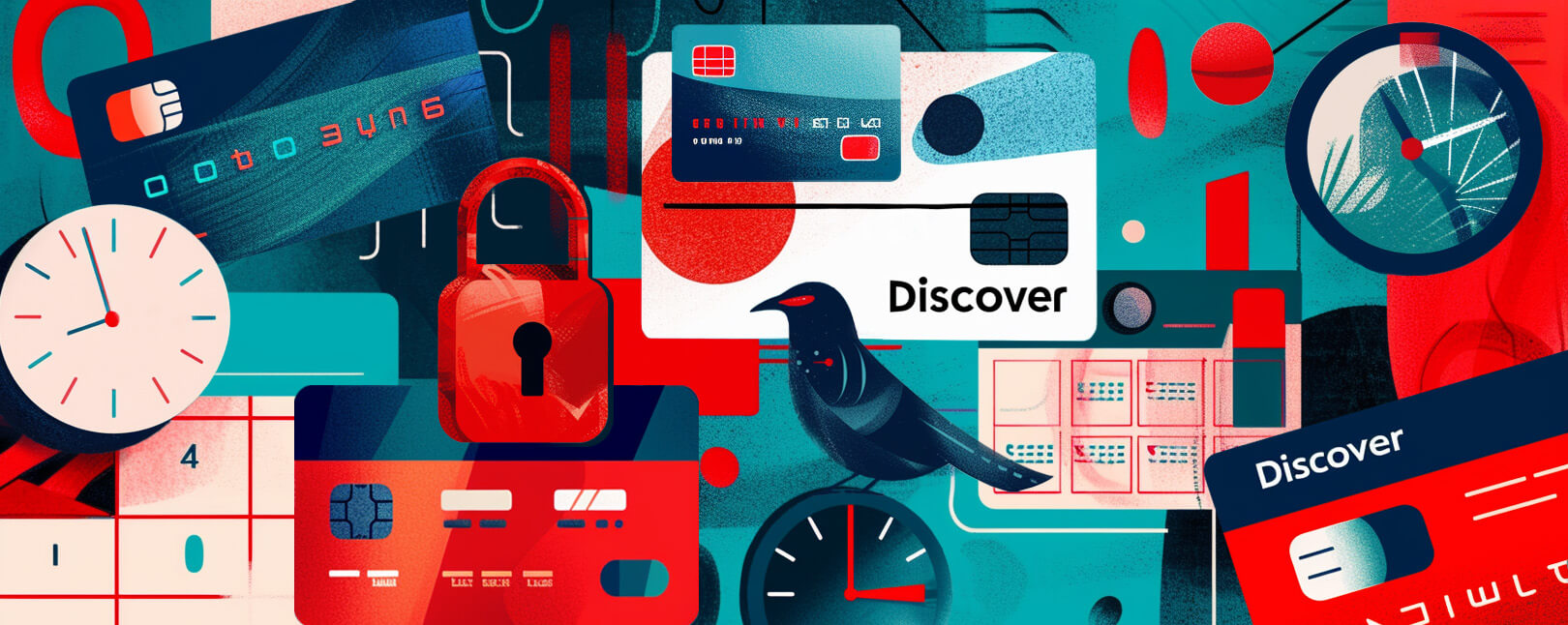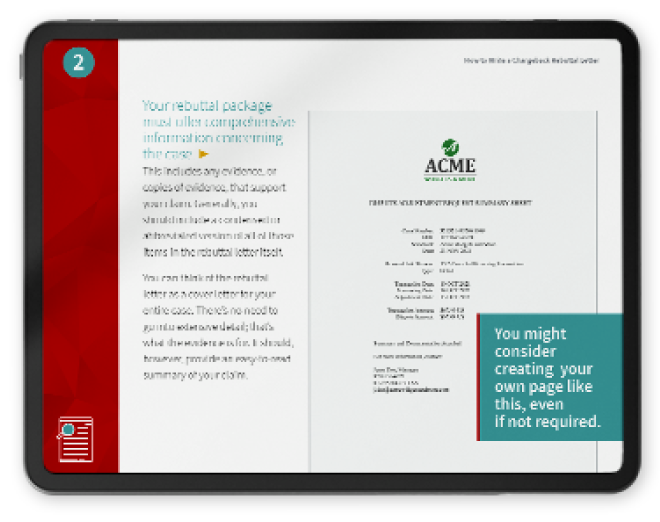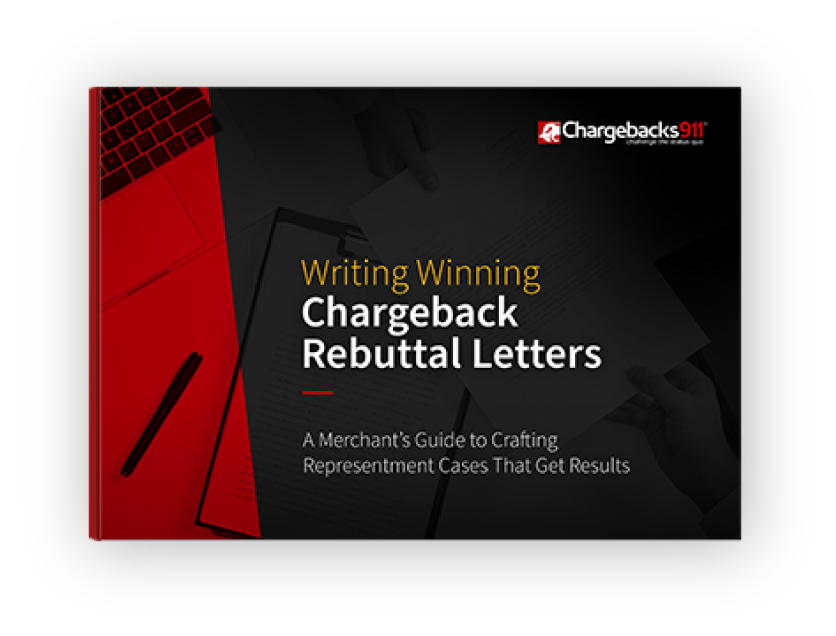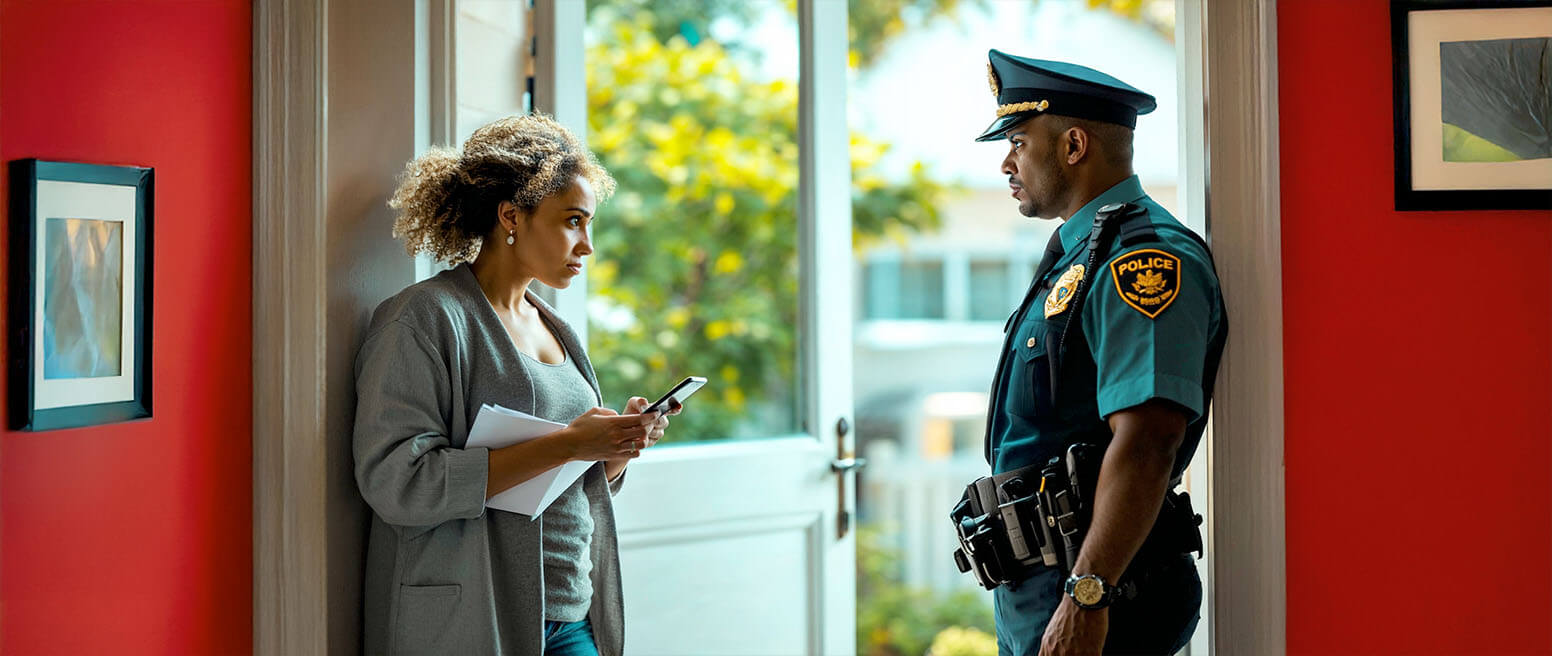Guidelines & Timetables for Merchants & Cardholders
Are you a merchant fighting an unfair chargeback claim? Or, are you a cardholder dealing with a case of criminal fraud? In either case, Discover card chargebacks come with built-in time limits you need to know about.
Merchants who accept Discover credit cards have probably dealt with a chargeback on Discover transactions at least once or twice. Like other card brands, Discover allows cardmembers to dispute unfair charges. The company’s chargeback process, however, can be hard to understand on the merchant side. This is particularly true when it comes to Discover chargeback time limits, which are heavily weighted in the customer’s favor.
Get general information about chargeback time limitsRecommended reading
- Chargeback Laws: What's the Legal Basis for Card Disputes?
- American Express Chargeback Time Limits: The 2025 Guide
- Chargeback Time Limits: the Merchant's Guide for 2025
- Chargeback Police Report | Can You Report Dispute Abuse?
- Is Chargeback Fraud Illegal? Here’s the Simple Truth.
- Here are Your 9 Basic Chargeback Rights as a Merchant
Why are Discover Chargebacks Different?
Like American Express, Discover serves as both a card network and a bank that can issue their own branded cards. While some third-party financial institutions are also authorized to issue Discover-branded credit cards, most Discover cards are issued through Discover.
This is in contrast to brands like Visa and Mastercard, which serve as card networks only. Banks may issue Visa- or Mastercard-branded cards, but this only means the banks are merely of that respective card network. Visa and Mastercard never issue their own cards.
How merchants can respond to any given dispute differs depending on the issuer, but there are other differentiating factors to consider, as well. So, let’s look at the Discover chargeback time limits for merchants and cardholders in more detail.
Learn More About Discover card chargebacksDiscover Chargeback Time Limits for Cardholders & Issuers
The standard Discover chargeback time limit for cardholders is 120 days from the day they made the purchase for most Discover chargeback reason codes.
It’s important to note that Discover may opt to extend the chargeback deadline for cardholders. However, there is no clearly outlined ruleset governing this practice; it is done as a courtesy gesture to cardholders on a case-by-case basis. So, if you need to dispute a charge, it's a good idea to contact Discover as soon as possible, to ensure the time limit doesn’t pass you by.
Furthermore, there are exceptions to the standard time limit made in the case of specific reason codes outlined below:
- AT: Authorization Noncompliance
- LP: Late Presentation
- IN: Invalid Card Number
- RG: Non-Receipt of Goods, Services, or Cash
- RM: Cardholder Disputes the Quality of Goods or Services
There are also exceptions made in the case of so-called “Good Faith Investigations.” We will outline these exceptions in more detail below.
What Cardholders Need to Do Before the Chargeback Time Limit Expires
Before making the call, there are a few steps you should take before picking up the phone to initiate a dispute.
Here’s a brief overview of the process:
Step #1 | Identify a Valid Reason for the Dispute
Customers can initiate chargebacks for various reasons, including unauthorized transactions, billing errors, goods or services not received, or goods or services not as described. The specific reason for the dispute will determine the process and documentation required.
Step #2 | Attempt to Contact the Merchant
You should try to resolve the situation with the merchant directly before initiating a chargeback. This is especially true for disputes related to “goods or services not received” or “not as described” claims. A merchant refund will generally be faster and easier than a chargeback.
#3 | Be Ready With Documentation
Cardmembers should be prepared to provide supporting documentation when initiating a chargeback. This may include sales receipts, invoices, correspondence with the merchant, proof of return shipping, and any other relevant information that can help substantiate the dispute.
Step #4 | Contact Discover
If merchant resolution doesn’t work, cardmembers should contact Discover to dispute the charge. You can often find the contact information on the back of your card or on the official Discover website. Reporting the issue promptly is essential, especially for unauthorized transactions.

Lastly, customers should be aware that the chargeback may not always work out in their favor. If the merchant is able to provide more compelling evidence of the legitimacy of the transaction in question, the card network may side with the merchant. Be sure to review your card's terms and conditions for details if you’re unsure whether you have a valid reason for a dispute.
Discover Chargeback Time Limits for Merchants
When a cardmember disputes a charge, Discover reviews the case and makes an initial decision. If there is sufficient evidence to support the claim, the chargeback is filed and the transaction amount is immediately removed from the merchant’s account.
If the company questions the cardmember’s claim, however, Discover may send a Ticket Retrieval Request (TRR) looking for additional details. This is less common for consumers with cards issued through Discover Financial. In these cases, the company owns both the issuer and card network, so they will usually have all the documentation they need to make a call.
After receiving a TRR, merchants are allowed to simply accept the chargeback. But, what if they believe a customer dispute is invalid or was issued incorrectly? In these cases, the Discover chargeback time limit allows up to 20 days to present evidence as a response.
If Discover is functioning as the card issuer, they have 30 calendar days to file an appeal. At that point, the merchant has another 20 days to submit additional evidence. If the case moves into arbitration, they have 45 calendar days to respond.
Another thing to keep in mind is that the time windows presented here don’t only apply to the merchant. Other parties, such as acquirers and processors, may also have actions to perform in the same timeframe. Thus, they have the power to impose shorter timeframes on the merchant in order to give themselves more time to act.
What Merchants Need to Do Before the Chargeback Response Time Limit Expires
When a customer disputes a charge with Discover, the company carefully examines the situation and makes an initial decision. If there is enough evidence supporting the customer's claim, Discover initiates a chargeback, and the transaction amount is deducted from the merchant's account.
However, things work differently when there is uncertainty about the claim. In that case, Discover may send an inquiry, sometimes called a request for information, to gather more details. Merchants have a 20-day window to respond to this inquiry, either by accepting the dispute or providing evidence that disputes the customer's claim. If they fail to respond within the given time frame or if Discover deems their evidence insufficient, the dispute becomes a chargeback.
Keep in mind that Discover serves both as an issuer and a card network within the same transaction. This means they should have enough documentation to make an informed decision. If you believe a response is justified, though, here's a step-by-step breakdown of the process:
Step #1 | Thoroughly Review the Chargeback Notification
When you receive a chargeback notification from Discover, take the time to carefully review the provided documentation. This notification usually includes details about the disputed transaction, the reason for the chargeback, and the deadline for your response.
Step #2 | Collect Relevant Supporting Documents
Gather all the necessary documents related to the disputed transaction. This may include sales receipts, invoices, shipping records, any communication with the customer, and any other evidence that supports your side of the story. Ensure your documentation is well-organized and easily accessible.
Step #3 | Create a Clear & Detailed Response
- A brief summary of the transaction and its specifics.
- An explanation of why the chargeback is not valid, backed by evidence.
- References to relevant policies, terms and conditions, or agreements.
- Any relevant communication or correspondence with the customer.
- A request for the chargeback to be reversed, along with a clear statement of your desired resolution.
Step #4 | Submit Your Response
Make sure to submit your response to Discover within the specified timeframe (more details below). Failing to respond on time could result in an automatic loss of the dispute.
We can’t emphasize enough that chargeback rules and procedures can change over time, so it's crucial to consult Discover's most up-to-date guidelines and documentation for the latest information. Additionally, it's important to proactively address issues that could lead to chargebacks and implement best practices to prevent future disputes.
Phases of the Discover Chargeback Process
The Discover chargeback process usually follows three primary phases:
Finally, remember that the point which qualifies as "Day One" will reset at each stage of the chargeback process. So, while the time limit on chargebacks is predetermined, it will still move around as one progresses to a different stage of the dispute:
Exceptions to Discover Chargeback Time Limits
The 120-day limit for filing chargebacks applies to most Discover cases. But, if the issuer submitted a retrieval request, and the request process goes beyond the 120-day deadline, the issuer will have 30 more days to file a chargeback.
This possible extension is standard procedure. However, as mentioned above, there are three reason codes for which the rule does not apply. These Discover card reason codes include:
- AT: Authorization Noncompliance
- LP: Late Presentation
- IN: Invalid Card Number
Disputes with one of the above reason codes are limited to 120 days.
There are a few other types of Discover chargebacks with non-standard Discover chargeback time limits, of which merchants and cardholders should be aware:
Sometimes, a cardmember may not realize they are the victim of fraud until well past the allowed chargeback time frame. In these situations, the issuer has up to two years to initiate a “good faith” investigation into the fraud claim.
Disputes with this reason code are still limited to a 120-day filing window. The start date for that window can vary, though. For example, if there was a scheduled delivery date for the order, then the timeframe starts on that date. Otherwise, the Discover card chargeback time limit starts at the transaction processing date. It’s also important to note that the issuer cannot file the chargeback until at least 15 days after the processing date.
A chargeback cannot be initiated more than 540 days after the transaction date in either of these situations.
These chargebacks fall under the standard 120-day timeframe, but they have an additional limitation. If the cardholder claims that the merchandise is counterfeit, the 120-day window starts on date the cardholder learned the merchandise was counterfeit.
If the cardholder claims the terms were misrepresented, the 120-day window starts on the scheduled delivery date. In both cases, the chargeback cannot be initiated more than 540 days from the transaction date.
A chargeback can be initiated within 120 days from any of the following events:
- The date the transaction was processed.
- The date shown on the credit receipt.
- The date purchased goods were returned.
- The date services were cancelled.
- The date of the event (or reservation).
A chargeback cannot be filed for at least 10 days after the date of a reservation, cancellation, or return. A chargeback also cannot be filed more than 540 days beyond the point at which the interaction began.
Working With Discover Dispute Deadlines
Discover card dispute time limits are confusing…much like many other parts of the Discover card dispute process. Without knowing how different factors affect the timeframe, however, merchants are much more likely to miss a deadline and automatically lose a case.
If you're a merchant, outsourcing chargeback management to the right professionals can free up time and ensure a much higher win rate. In fact, Chargebacks911® offers a guaranteed ROI for all chargeback disputes we compile on your behalf. Contact us today to learn more about recovering revenue amid restrictive Discover chargeback time limits.
FAQs
Is Discover good with chargebacks?
Yes. Discover is generally considered to have a fair and balanced approach to chargebacks, with clear processes for merchants and cardholders. Their focus on resolving disputes efficiently benefits both parties involved.
What is the chargeback threshold for Discover?
Discover's chargeback threshold is typically set at 1% of a merchant's total transactions or 100 chargebacks in a rolling calendar month (whichever is lower). Merchants exceeding this threshold may face increased scrutiny and potential penalties.
Can you dispute a credit card charge after 6 months?
Generally, Discover's dispute time limit is 120 days from the date of the original transaction. Disputes initiated after this 120-day window may not be accepted, but there can be exceptions based on specific circumstances and Discover's policies.
Who usually wins chargebacks?
The outcome of a chargeback dispute can vary, but statistically, cardholders tend to win chargebacks more often than merchants. Cardholders often have the advantage of consumer protection regulations, and they may have easier access to evidence in their favor. However, merchants that challenge illegitimate disputes with compelling evidence win their disputes fairly often.














